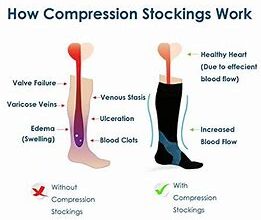When it comes to managing your baby’s health, one of the most concerning issues for parents is fever. Fevers in babies can be caused by various factors, such as infections, vaccinations, or teething. It’s necessary to take proper measures to monitor and manage your baby’s temperature. In this guide, we will provide you with essential tips on how to safely and effectively take your baby’s temperature.
First and foremost, it’s important to note that while a temperature spike can be a cause for concern, most fevers are actually the body’s way of fighting off infections. However, some fevers in babies can be a sign of a more serious underlying condition, especially if the baby is under three months old. In such cases, it’s crucial to seek professional healthcare advice.
To measure your baby’s temperature, you should include them in a comfortable environment and use a reliable thermometer. It is recommended to use a rectal thermometer for babies under three months as it provides the most accurate reading. For older babies, you can use an oral or forehead thermometer, but make sure to follow the manufacturer’s instructions carefully.
Once you have obtained the thermometer, gently insert it into your baby’s rectum about half an inch, or as instructed by the manufacturer. Hold the thermometer in place until it beeps or signals that the temperature has been taken. Remember to clean the thermometer thoroughly after each use.
While it’s important to monitor your baby’s temperature, it’s equally important to note that fever is not always a cause for panic. Most fevers in babies are harmless and will resolve on their own within a few days. However, if your baby’s fever reaches 100.4°F (38°C) or higher, or if they display concerning symptoms such as difficulty breathing, severe headache, or a rash, you should seek immediate medical attention.
It’s also worth mentioning that fever management should not solely rely on medication. In fact, over-the-counter fever-reducing medications are not recommended for babies under six months. Instead, focus on keeping your baby comfortably cool by dressing them in light clothing, offering plenty of fluids, and ensuring a well-ventilated environment. Additionally, you may want to use a lukewarm sponge bath to help lower their body temperature.
In conclusion, taking your baby’s temperature is an essential part of managing their health. By following these guidelines and seeking professional advice when necessary, you can ensure that your baby’s fever is effectively managed while keeping them safe and comfortable.
Everything you need to know about fever and babies
A fever is a common symptom in babies and can be concerning for parents. It is important to know how to take your baby’s temperature, as well as when to seek professional healthcare.
The normal body temperature range for a baby is between 97°F (36.1°C) and 100.3°F (37.9°C). Babies under 3 months old should have their temperature taken rectally, while older babies can have it taken under the arm or orally.
There are several ways to measure a baby’s temperature, including using a digital thermometer, ear thermometer, or forehead thermometer. It is important to note that not all fevers require treatment, as they can be a sign that the baby’s immune system is fighting off an infection.
Common causes of fever in babies include infections such as colds, flu, urinary tract infections, or ear infections. It is important to monitor your baby’s fever and look out for any concerning symptoms such as difficulty breathing, a rash, or a stiff neck.
If your baby’s fever is above 100.4°F (38°C), you should consult a healthcare professional. They will be able to determine the cause of the fever and recommend appropriate treatment.
In some cases, medication may be prescribed to help manage your baby’s fever. However, it is important to follow the healthcare professional’s instructions and avoid giving your baby any over-the-counter medications without their guidance.
While there is no specific way to prevent fevers in babies, there are some steps you can take to reduce the risk. These include keeping your baby up to date on their vaccinations, practicing good hygiene, and avoiding close contact with individuals who are sick.
In conclusion, fevers are common in babies and can be a sign of their body fighting off an infection. Most fevers are not concerning, but it is important to monitor your baby’s temperature and seek medical attention if necessary. By taking the appropriate measures and following professional advice, you can help keep your baby healthy and safe.
Causes of Fever in Babies

Fevers in babies can be caused by a variety of factors. While some fevers may be harmless and not a cause for concern, others may indicate a more serious underlying problem. It is important to understand the potential causes of fever in babies and when it may be necessary to seek professional healthcare.
A normal body temperature for a baby is typically around 97°F to 100.3°F (36°C to 38.1°C). It is important to note that newborns under three months old may have a slightly higher range of normal temperatures.
Some common causes of fever in babies include:
| Cause | Description |
| Infections | Fevers are often the result of the body fighting off an infection. These can include respiratory or urinary tract infections, ear infections, or viral illnesses. |
| Vaccinations | After receiving vaccinations, some babies may experience a low-grade fever as their immune system responds. |
| Teething | While there is some debate, some parents believe teething can cause a slight increase in body temperature. |
| Overheating | Babies can become overheated if they are dressed too warmly or exposed to excessive heat. This can lead to a fever-like symptoms. |
| Heatstroke | In extreme cases, exposure to high temperatures can result in heatstroke, which can cause high fever in babies. |
| Other Illnesses | Some underlying medical conditions, such as autoimmune disorders, may cause recurring fevers in babies. |
It is important for parents to monitor their baby’s temperature and consult a healthcare professional if necessary. While fevers are often a normal response to infection and can help the body fight off invaders, extremely high fevers or prolonged fevers may require medical attention. Parents should use a reliable thermometer to measure their baby’s temperature and should follow the instructions for use carefully.
Managing a baby’s fever can include keeping them hydrated, dressing them in light clothing, and providing appropriate doses of medications recommended by a healthcare professional. It is important to note that certain medications, such as aspirin, should not be given to babies.
Overall, understanding the causes and how to measure and manage a baby’s fever can help parents ensure their child’s health and well-being.
Symptoms of Fever in Babies

Fevers in babies can be concerning for parents, but it’s important to note that they are a natural response of the body fighting off infections. While most fevers are harmless and resolve on their own, it’s crucial to know the symptoms of fever in babies to ensure their well-being.
Some common symptoms of fever in babies include:
- Increased body temperature: A baby’s body temperature may rise above the normal range of 97-100.4°F (36-38°C).
- Warm to touch: The baby’s skin may feel warm or sweaty.
- Irritability: The baby may become fussy and cry more than usual.
- Loss of appetite: Babies may refuse to eat or drink.
- Being sleepy or lethargic: The baby may appear tired and have less energy.
- Rapid breathing: Breathing may be faster than normal.
- Coughing or congestion: Fevers can be accompanied by coughing or a stuffy nose.
- Vomiting or diarrhea: Some babies may experience gastrointestinal symptoms.
If your baby is under three months old, any fever should be taken seriously and prompt medical attention is necessary. For babies older than three months, you should contact a healthcare professional if the fever is higher than 100.4°F (38°C) or if your baby has other concerning symptoms.
It’s important to measure your baby’s temperature accurately. Using a digital thermometer specifically made for babies is recommended. There are several methods to take a baby’s temperature, including rectal, oral, axillary (under the armpit), and tympanic (in the ear). Follow the instructions provided with the thermometer to ensure accurate measurement.
While it is not always necessary to give medications to reduce a baby’s fever, some cases may warrant it. Always consult a healthcare professional before giving any medications to your baby.
Keep in mind that fever is usually a sign that the body is fighting off an infection. It can be caused by common illnesses like cold and flu, as well as by more serious infections. In some cases, vaccinations can also cause a low-grade fever as the immune system responds to the vaccine.
If your baby has a high fever (over 104°F or 40°C), experiences seizures, has difficulty breathing, or shows any other concerning symptoms, seek immediate medical attention as it may indicate a more serious condition such as heatstroke or a severe infection.
Why do babies get fevers
:max_bytes(150000):strip_icc()/how-to-take-a-babys-temperature-5115667-FINAL-ad219d62ec3d469ba35379cfc4802332.jpg)
Fevers are a common occurrence in babies and young children. There are several reasons why babies may develop fevers, and it is important for parents to understand these causes to keep their baby safe and seek professional help if necessary.
Fevers can be concerning for parents, especially when their baby is experiencing it for the first time. While fevers are often a sign that the body is fighting off an infection, it is important to note that not all fevers indicate a serious underlying condition. Most fevers in babies are caused by common infections that are relatively harmless and can be managed at home.
One of the most common causes of fevers in babies is an infection. Babies have developing immune systems, and as they are exposed to various germs, they may develop fevers as their body works to fight off these infections. Infections can include respiratory infections, ear infections, urinary tract infections, and gastrointestinal infections.
It is also important to note that some fevers in babies may be caused by vaccinations or medications. Vaccinations can cause a slight increase in body temperature as the body responds to the vaccine and builds immunity. In some cases, certain medications may also cause a fever as a side effect.
Babies are also more susceptible to heatstroke, especially during hot summer months. Exposing babies to extreme heat can cause their body temperature to rise and lead to a fever. It is crucial for parents to take measures to keep their baby cool and hydrated in hot weather.
In summary, fevers in babies can be caused by a range of factors, including infections, vaccinations, medications, and heatstroke. While most fevers in babies are relatively harmless and can be managed at home, it is essential for parents to monitor their baby’s temperature and seek professional healthcare if necessary.



